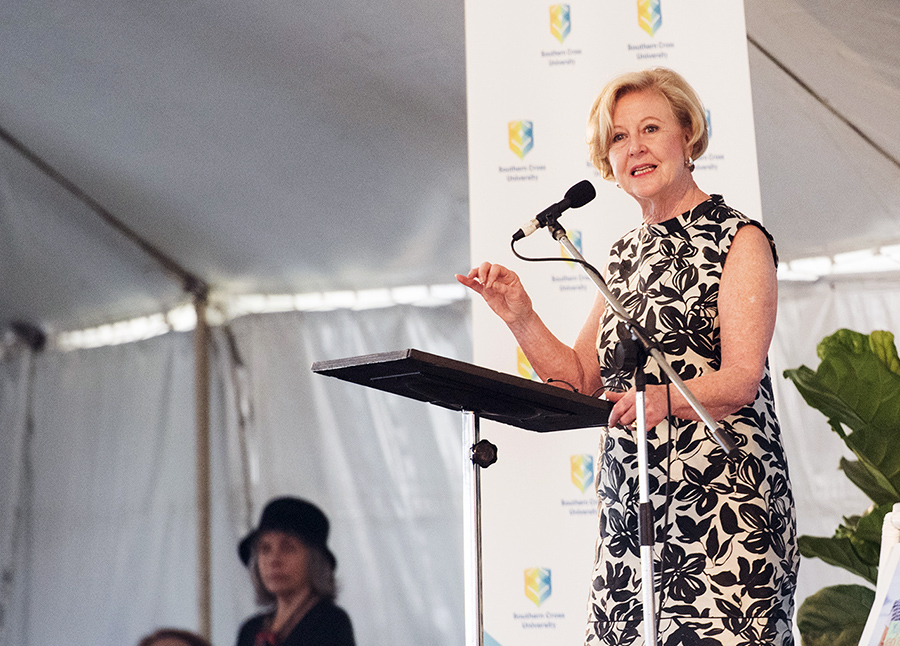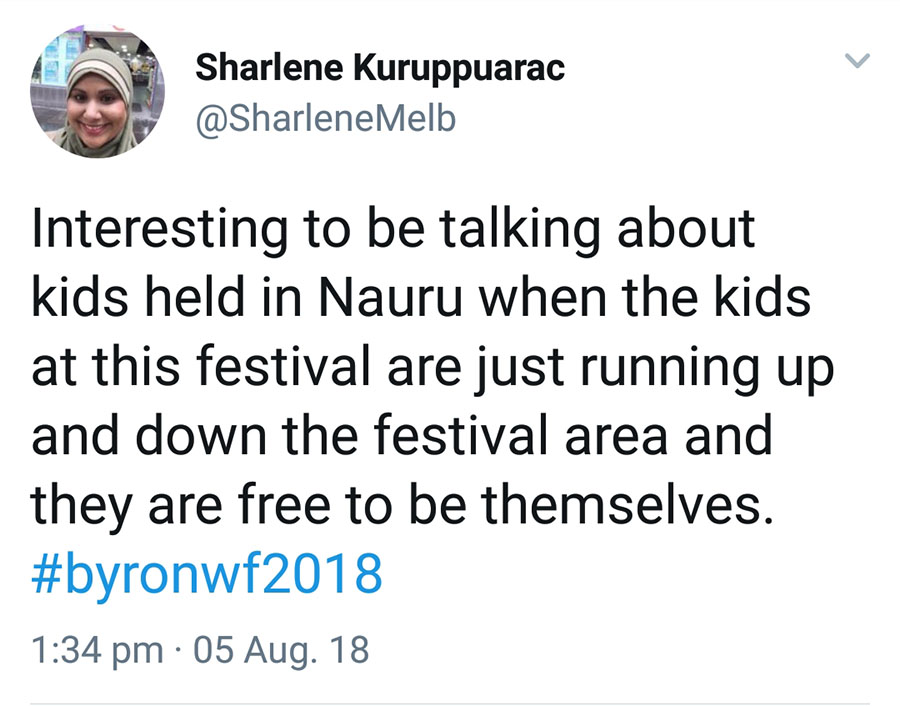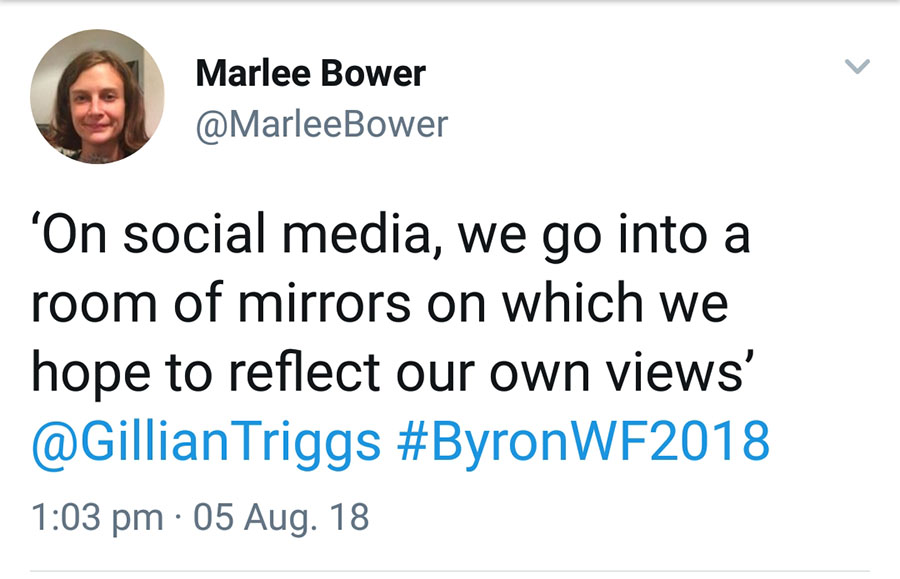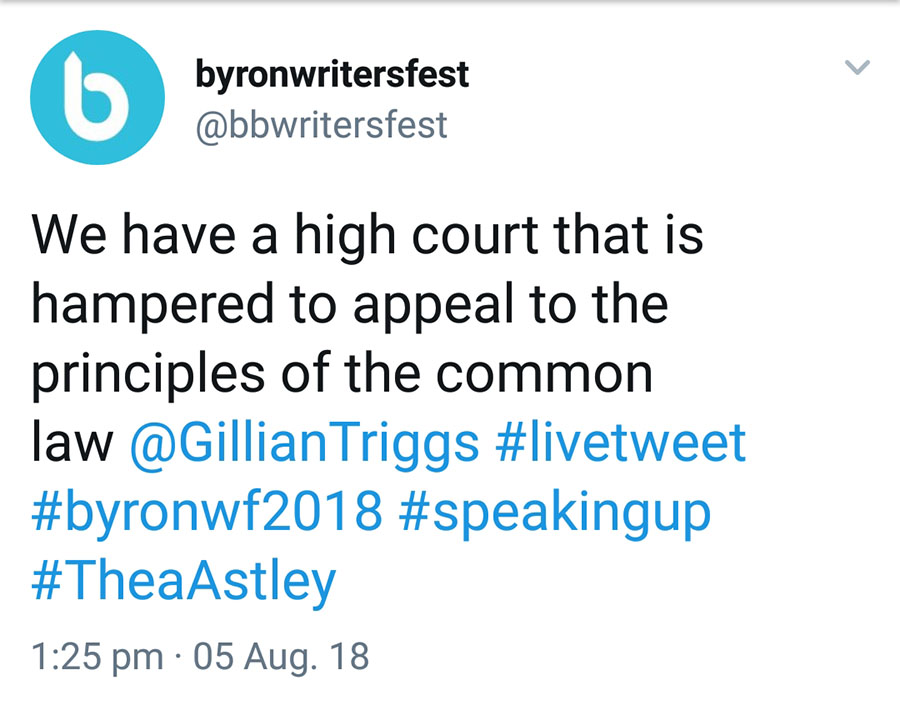Thea Astley address: Gillian Triggs on speaking out in a post-truth world

Described as having ‘steeliness by the bucket load’, the passionate Gillian Triggs, an Australian Academic specialising in International law and the 2012-2017 President of the Australian Human Rights Commission, gave the annual Thea Astley address at Byron Writers Festival today on how to speak out in a post-truth world.
Triggs’ first objective was to impart that she didn’t claim ‘a special corner on truth’, but she did wish to detail how fact and evidence is increasingly dismissed in informing law reform and policy in Australia.
Having been taken ‘taken to task’ by Australian media and politicians, especially by Fairfax and Murdoch cartoonists, Triggs highlighted the power of the media in promoting the world of ‘alternative facts’, a term coined by Trump White House spokesperson, Kellyanne Conway.
‘When you repeat a lie enough,’ says Triggs. ‘It becomes a truth.’
She cited some examples of the Howard government spreading false facts about as the Children Overboard Allegation in 2001. And then there were the false facts suggesting the Save the Children Organisation was encouraging detainees to self-harm in Nauru.
The detention centres on Nauru and Christmas island are close to Triggs’ heart. She was involved in the Australian Human Rights Commission Forgotten Children’s report in 2015, as well as the more recent Royal Commission into the detention of Indigenous youths in the Northern Territory.
These reports strictly followed the scientific approach, based on fact and evidence, Triggs said. But, they were dismissed by the Australian government and the situations did not enter the populace’s awareness until ‘iconic’ photos of NT’s Don Dale youth detention centre and the three-year-old Syrian boy, Alan Kurdi, who drowned in the Mediterranean sea were circulated the public sphere.

Instead, Triggs says there is a new preference for arguments based on subjectivity and emotion, which is leading to an ‘Alice in Wonderland world’.
In such a world, says Triggs, it is like Humpty Dumpty says, when a word is chosen ‘it means just what [we] chose it to mean’.
Triggs identifies drivers of this subjectivity as including the fish bowl effect of social media and the Australian government which is dealing in a ‘currency of fear’, introducing its Foreign Interference, Metadata retention, and Border Protection laws.

Triggs believes that to regenerate our society, so that it looks through the ‘lens of human rights’ at everything, Australia must demand a legislative Charter of Human Rights, as Australia is the only democratic nation not to have one.

This would give the High Courts ‘the tools they need’ and a benchmark with which to measure government policy, checking and balancing executive power in the country.
This would mean politicians would know their policies would always be ‘subject to review by the courts’, says Triggs. Which would ‘start to build trust in the system’.
Triggs ended her address with a self-deprecating quote from Jane Austen: ‘[I] have entertained us enough, thank you.’
But if Triggs form of entertainment is drilling bravely into the squall of post-truth politics, I hope she never stops entertaining us.
Jade Hurley is a Southern Cross University Creative Writing BA student.
